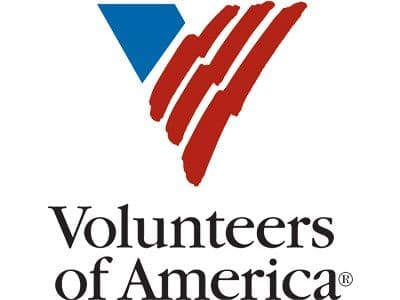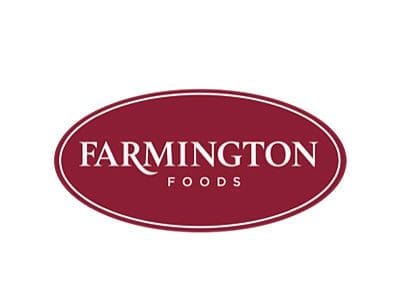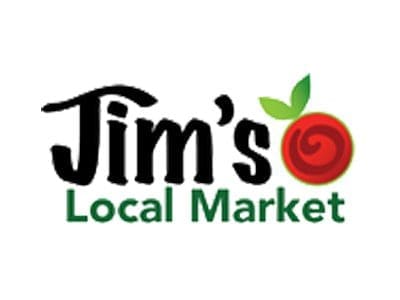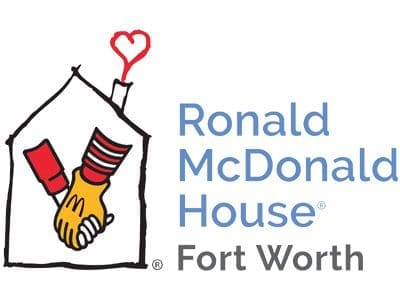CBO Financial's Community Development Financing Solutions: Transform Low-Income Communities
Investments, Communities, Revitalization.
CBO Financial is expert in financing impactful projects that help to revitalize distressed communities. We are committed to providing flexible, below-market gap financing to high-impact projects that cannot otherwise move forward. By focusing on economic, environmental, and societal benefits, CBO Financial empowers businesses, nonprofits, and municipal agencies to create jobs, improve infrastructure, and enhance the quality of life in underserved areas.
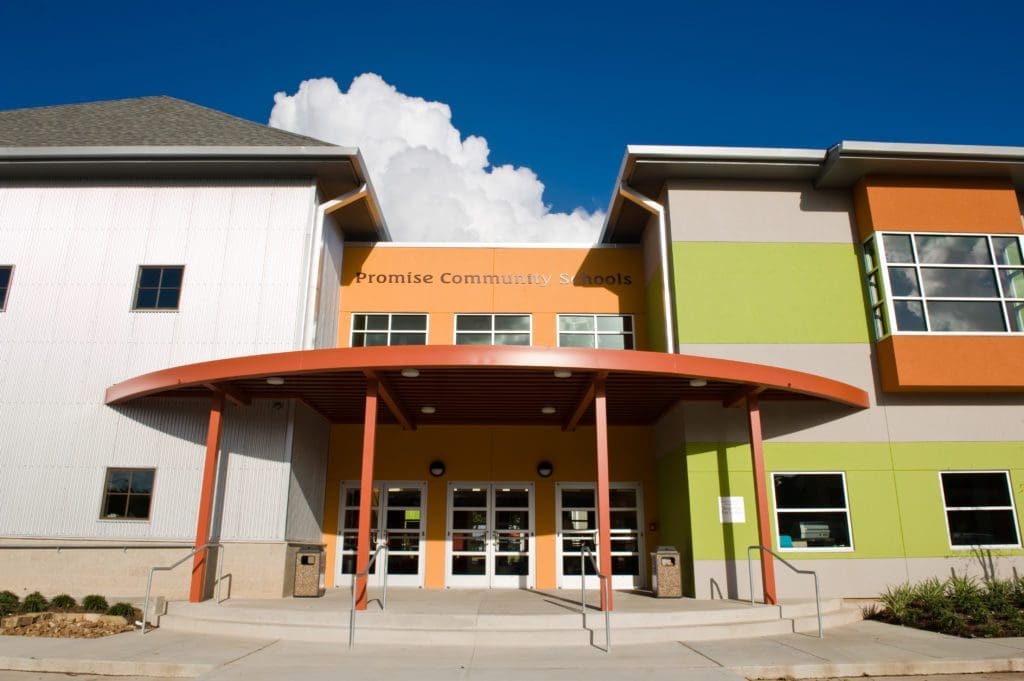
Baker Ripley House Neighborhood Centers
Houston, Texas
We Have Helped Our Clients Acquire Funding for Over 200 Projects
Projects Funded
In Secured Funding
NMTC Allocations for Ourselves & Clients
Programs We Use to Source Financing for Community Development Projects in Low Income Communities
Trusted by Numerous Community Development Project Sponsors and Investors
Providing expert consulting and valuable insights in community development financing.
Ray Chung
Vice President & CFO" _builder_version="4.27.4" _module_preset="default" title_level="h4" title_font="|600|||||||" title_text_color="gcid-4a87d2fb-f58e-4bc3-91df-eff1310e1c81" title_font_size="27px" title_line_height="1.2em" desc_font="||||||||" desc_text_color="#011A14" desc_font_size="16px" desc_line_height="1.4em" global_colors_info="{%22gcid-4a87d2fb-f58e-4bc3-91df-eff1310e1c81%22:%91%22title_text_color%22%93}"][/dipi_carousel_child][dipi_carousel_child title_text="Capital Trust Agency" desc_text="
“Our governing board retained CBO Financial to ensure our CDE would perform as desired. We have found their support and expertise throughout the NMTC process to be quite valuable, and that their fee structure is fair. We highly recommend CBO Financial for any consultative services related to the NMTC program.”
Ed Gray III
Executive Director
" _builder_version="4.27.4" _module_preset="default" title_level="h4" title_font="|600|||||||" title_text_color="gcid-4a87d2fb-f58e-4bc3-91df-eff1310e1c81" title_font_size="27px" title_line_height="1.2em" desc_font="||||||||" desc_text_color="#011A14" desc_font_size="16px" desc_line_height="1.4em" global_colors_info="{%22gcid-4a87d2fb-f58e-4bc3-91df-eff1310e1c81%22:%91%22title_text_color%22%93}"][/dipi_carousel_child][dipi_carousel_child title_text="Volunteers of America National Services" desc_text="
“CBO Financial provided tremendous support and leadership in the submission of a successful NMTC application for Volunteers of America. They guided us each step of the way, providing thoughtful and timely expert advice as the organization developed the application. We look forward to working closely with them as we begin the operations of the CDE and start to close transactions.”
Robert Gibson
VP & Finance
" _builder_version="4.27.4" _module_preset="default" title_level="h4" title_font="|600|||||||" title_text_color="gcid-4a87d2fb-f58e-4bc3-91df-eff1310e1c81" title_font_size="27px" title_line_height="1.2em" desc_font="||||||||" desc_text_color="#011A14" desc_font_size="16px" desc_line_height="1.4em" global_colors_info="{%22gcid-4a87d2fb-f58e-4bc3-91df-eff1310e1c81%22:%91%22title_text_color%22%93}"][/dipi_carousel_child][/dipi_carousel]
Learn How CBO Financial Sources Community Development Financing for Projects in Low-Income Communities
More Information
Understanding Community Development Finance with CBO Financial
Community development finance helps improve the economy and includes everyone in it. This finance type focuses on investing in communities, which boosts their quality of life. It opens doors for affordable housing, small businesses, and community facilities.
What is Community Development Finance?
Community development finance means giving money and resources to help communities that need it. The main ideas are to promote economic growth, make financial services easier to access, and support sustainable investments. Community Development Financial Institutions (CDFIs) play a big part by offering loans and other financial products for people in low-income areas.
CDFIs help local economies by funding projects for affordable housing and small businesses that may not get money from regular banks. The key players in this finance world include government groups, nonprofit organizations, private investors, and the communities they help.
Types of Community Development Financial Institutions (CDFIs)
CDFIs come in different shapes and sizes, each serving its unique purpose. Here are some common types:
- Community Banks: These banks focus on lending money to local people.
- Credit Unions: They offer savings accounts and loans for their members.
- Loan Funds: These funds are set up specifically to finance projects like affordable housing.
- Venture Capital Funds: They aim to help startups in areas that often lack funding.
These institutions play an essential role by helping local economies grow. They give financing options that allow communities to improve while addressing the needs of those who often struggle.
CDFI Certification Process
If an organization wants to become a CDFI, it must meet specific rules set by the U.S. Department of the Treasury’s CDFI Fund. Organizations should show they are dedicated to helping low-income or underserved groups through their work.
The certification process generally involves:
- Filling out an application explaining their structure and impact.
- A review by experts from the CDFI Fund.
Once certified, organizations gain credibility with potential funders. They also get access to federal resources that support community investment efforts.
CBO Financial’s CDFI Consulting Services
Affordable Housing Solutions
CBO Financial helps with affordable housing solutions. We know that good housing is important for community development finance. Quality homes create economic opportunity and help neighborhoods grow. Our team works with partners to create smart financing strategies for low-income communities. We find funding sources like federal grants and state programs to support housing projects.
We believe in making communities sustainable. We include community facilities in our housing plans. These places offer services that improve the lives of residents. By focusing on neighborhood revitalization, we change struggling areas into places where families can thrive.
Small Business & Entrepreneurship Support
Supporting small businesses is key to economic growth in local communities. At CBO Financial, we provide services to help entrepreneurs succeed. Our loan programs are designed to meet the needs of many types of businesses, giving them access to capital that may be hard to find.
We don’t just stop at loans; we also offer technical assistance. This helps business owners improve their operations and build their assets. Our aim is not just to provide immediate help but also to ensure local businesses can grow sustainably through education and mentorship.
Community Facilities & Infrastructure
Investing in community facilities and infrastructure is vital for better living conditions in underserved areas. CBO Financial promotes public-private partnerships for major improvements while ensuring everyone can access necessary resources.
By connecting communities with different funding sources, we empower them to invest wisely in their futures. We listen to local residents during this process to make sure their ideas shape planning efforts. This leads to successful outcomes that meet the real needs of each area.
Through these consulting services, CBO Financial works hard to create strong and vibrant communities where everyone has a chance for success.
Specialized Development Initiatives
Rural Development Strategies
Rural development helps improve life in less populated areas. It looks at unique challenges like poor access to financial services and fewer economic opportunities. Community investment is key because it provides specific financial products that meet rural needs.
Capacity building programs boost local skills and resources. They help residents take control of their future by promoting entrepreneurship and supporting small businesses. Investing in local economies creates jobs and encourages growth, which leads to stronger rural communities.
Challenges in rural finance include poor infrastructure and limited market access. Solving these issues needs creative solutions that mix public funds with private investments, making sure money gets to those who need it.
Environmental Remediation & Sustainability
Environmental sustainability means protecting our planet while still encouraging growth. Green financing options fund projects that aim to reduce environmental harm through sustainable practices. This includes energy efficiency initiatives that can lower bills for families and businesses.
Social impact investing also supports eco-friendly projects while giving returns for investors. Climate change financing deals with urgent environmental problems by funding renewable energy or conservation efforts.
Integrating sustainable practices into community development finance benefits both the environment and future generations.
Financial Empowerment Programs
Financial empowerment programs teach people about money management through financial literacy education. These programs cover important skills like budgeting, saving, and investing so people can make smart choices about their finances.
Asset-building strategies help participants save money while improving their credit scores through credit improvement services. Financial inclusion ensures everyone has access to banking services, especially minority communities facing barriers.
Economic empowerment helps these groups become self-sufficient, creating pathways out of poverty through better job opportunities and wealth building over time.
Economic Growth and Community Well-being
Jobs & Workforce Development
Jobs are very important for a community’s growth. They help people earn money and support their families. Workforce development focuses on finding ways to create more jobs. This means having programs that teach people the skills they need for jobs available in their area.
To do this well, it’s good to work with local businesses, schools, and government groups. Together, they can make plans to boost job creation.
Community engagement is also key. When people get involved in decisions about job training and programs, they feel more connected. This way, programs can match what people really want or need. Programs like internships or apprenticeships can also help young people get real work experience.
Healthy Communities & Food Access
Healthy communities need good food and health care options. Access to nutritious food is very important for everyone. In places where there aren’t enough health facilities, financing for these services can help a lot. More health centers can mean better health for all.
Supporting local food systems helps people find fresh food easily. This can include things like farmers’ markets and community gardens. Teaching nutrition through education initiatives helps everyone make smart choices about what they eat.
- Local initiatives could be:
- Farmers’ markets
- Community gardens
- Nutrition workshops
Equitable Economic Development
Equitable economic development means making sure everyone in the community benefits from economic growth. It involves inclusive growth strategies that focus on helping minority-owned businesses succeed. Support can come from grants and mentorship programs.
To keep families in their homes during city improvements, we need anti-displacement measures. This ensures there are affordable housing options as neighborhoods change.
Fostering economic equity lets all community members share in growth opportunities:
- Support minority-owned businesses
- Create affordable housing options
- Offer mentorship and networking events
By focusing on these areas, communities can grow together and ensure everyone has a chance to thrive.
Access to Capital for Underserved Areas
Access to capital is very important for the growth of underserved populations. These communities often struggle to get financing, which stops their economic progress. Innovative lending models have stepped in to help solve this problem. The Community Reinvestment Act pushes financial institutions to invest in low-income areas by offering low-interest loans and services that promote financial inclusion.
Innovative Lending Models
Innovative lending models, like peer-to-peer lending, are changing how people get money. This method connects borrowers directly with lenders. It cuts costs and makes things clearer. Responsible lending ensures that borrowers find fair financing options that meet their needs. This helps avoid high rates that could lead to debt problems.
Risk Mitigation Strategies
Risk mitigation strategies are essential in helping underserved areas when disasters happen. Disaster recovery funding gives vital support when natural events hit, helping communities rebuild quickly. Financial assistance programs are also crucial during hard times, ensuring families can stay afloat even in tough situations.
Community Reinvestment Initiatives
Community reinvestment initiatives aim to revive neighborhoods through smart investment strategies. Community development banks and credit unions collaborate with local residents. They provide easy banking services and affordable loans that help drive economic growth.
Partnerships for Community Impact
Public-private partnerships greatly boost community impact by combining resources from both sectors. Collaboration with local governments is key to making sure policies support regional development and effectively meet community needs.
Collaboration with Local Governments
Working with local governments helps organizations push for policy changes that support sustainable regional development for everyone in the area.
Non-Profit Partnerships
Non-profit partnerships strengthen community engagement by providing necessary support services for low-income families. These partnerships address immediate needs while also building long-term resilience through education and job training.
Corporate Social Responsibility Programs
Corporate social responsibility (CSR) programs allow businesses to give back through philanthropic investments. These focus on social impact projects that economically and socially uplift underserved areas.
Measuring CDFI Impact
To measure the impact of Community Development Financial Institutions (CDFIs), it’s important to look at performance metrics related to economic growth, such as neighborhood revitalization efforts. These metrics show success in improving living conditions across different groups.
Performance Metrics
Performance metrics track how well goals related to economic growth are met. They play a big part in creating sustainable communities, which is essential for equitable development.
Social Return on Investment
The idea of social return on investment highlights the importance of creating value beyond just profit. It focuses on improving the quality of life in society, especially for marginalized groups who now have better access to opportunities.
Reporting and Transparency
Transparency in reporting funding sources is crucial so stakeholders know where grants go. This helps build trust within communities by showing that aid benefits everyone rather than just a few individuals.
Resources and Support
CDFI Fund Programs
The Community Development Financial Institutions (CDFI) fund helps boost economic growth across the United States. It has many programs that give financial help, like grants for community projects and loan guarantees. These funding sources are key for local organizations that want to improve their neighborhoods.
One important program is the Community Development Block Grant (CDBG). This program gives federal money to help with housing and community projects that support low- and moderate-income people. By using these funds, communities can work on issues like affordable housing, better infrastructure, and creating jobs.
CBO Financial’s Approach
At CBO Financial, we focus on community investment. We provide consulting services that fit the needs of each area we serve. Our industry knowledge allows us to support minority communities that often struggle to get access to capital. We offer mission-driven finance solutions that promote growth while also empowering residents.
Our success stories show how our approach can lead to real changes in communities. By working together with local leaders and stakeholders, we help create effective financial plans. This drives development while tackling social equity challenges.
Getting Started with CDFIs
Getting access to credit through CDFIs can change lives for many organizations aiming to boost their local economies. To start, it’s best to engage with your community and find out what it needs. This could mean improving access for small businesses or revitalizing public spaces.
When applying for funding from a CDFI, having a clear plan is important. Make sure to outline your goals clearly. Explain how your project will help with neighborhood revitalization or other local economic development efforts. By showing strong community involvement and clear objectives, you improve your chances of getting the funding you need.
Overall, knowing about resources like those offered by the CDFI Fund can greatly influence efforts aimed at building strong communities that focus on fair growth.
FAQs about Community Development Finance and CBO Financial
What is community development finance?
Community development finance supports projects that improve economic conditions in underserved areas. It focuses on funding affordable housing, small businesses, and community facilities.
How does CBO Financial assist in community empowerment?
CBO Financial empowers communities by providing access to capital. We create financial solutions that support local businesses and promote economic mobility.
What role does financial literacy play in community development?
Financial literacy teaches individuals how to manage money wisely. This education helps residents make informed choices about saving and investing, leading to better financial wellness.
How can job creation impact local economies?
Job creation boosts local economies by providing residents with stable income. It also encourages spending within the community, supporting local businesses and services.
What is the purpose of microfinance in community development?
Microfinance provides small loans to individuals or businesses lacking access to traditional banking. This funding helps entrepreneurs grow their ventures and creates jobs.
How do housing trust funds support affordable housing?
Housing trust funds provide dedicated financing for affordable housing projects. They ensure that low-income families have access to safe, stable homes.
What is the new markets tax credit?
The new markets tax credit incentivizes investment in low-income communities. Investors receive tax credits for funding projects that foster economic growth.
Why is equitable development important?
Equitable development ensures that all community members benefit from growth. It focuses on supporting marginalized groups to achieve economic justice.
Remaining Keywords
- Community Empowerment: Strengthens local leadership and ownership in decision-making.
- Poverty Alleviation: Focuses on reducing poverty through job creation and economic opportunities.
- Community Resilience: Builds capacity to recover from challenges like disasters or economic downturns.
- Healthy Food Access: Enhances food security by improving access to nutritious food options.
- Social Entrepreneurship: Encourages business models that solve social issues while being financially viable.
- Funding Collaborations: Leverages partnerships between organizations to maximize resources for community initiatives.
- Community Wealth Building: Promotes strategies that help communities retain wealth through local investments.
- Economic Mobility: Facilitates pathways for individuals to improve their economic status over time.
- Economic Equity: Addresses disparities by ensuring fair access to opportunities for all demographics.
- Workforce Development: Prepares individuals with skills needed for current job markets, boosting employment rates.
- Disaster Recovery Funding: Provides financial aid to rebuild communities after natural disasters strike.
- Access to Credit: Expands lending opportunities for those previously underserved by banks.
- Support Services for Low-Income Families: Offers resources like counseling and assistance programs for stability.
- Minority Business Support: Focuses on helping minority-owned businesses thrive through grants and mentorship.
- Community Organizing: Engages residents in collective action to advocate for their needs and rights.

